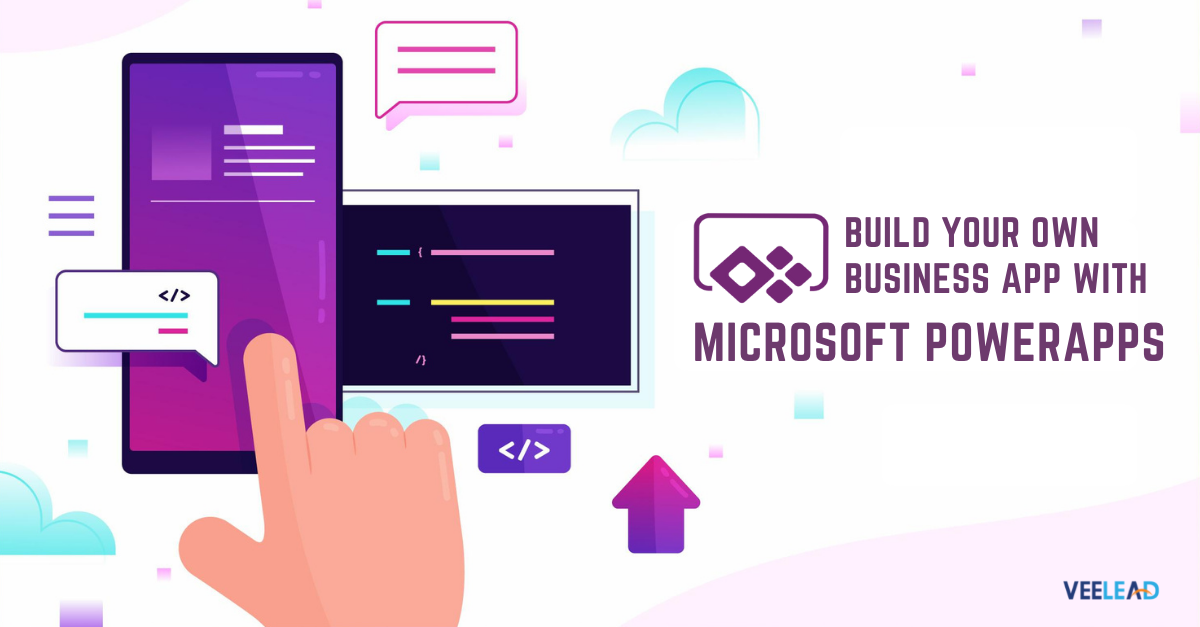

Microsoft introduced PowerApps as a service that can help companies create business apps. These applications developed with the help of PowerApps rely on web technologies and run completely in the browser. Another advantage of creating apps with PowerApps is that they can be published on Windows 10 devices, tablets and smartphones.
In the below article you will understand everything about Power Apps, its advantages, its benefits and how to build business applications with PowerApps.
What is the Advantage You Get With Power Apps?
PowerApps lets your team create applications without programming experience. Hence if you want to develop applications easily and effectively and increase your company’s productivity, in terms of creating apps, Microsoft PowerApps is your answer. Microsoft Power Apps Development makes developing programs easy for users.
Types of Apps
You can currently develop two types of applications, each with its own set of fundamental data. The most common applications are known as “Canvas-Apps.” You can choose from a variety of essential screens and controls to include on your interface. You may then add data to the controls by connecting to services and gateways. Another type of PowerApp is “Model-Driven Apps.” This means the models are in charge of the application layout. The term “model” refers to your defined representation of business processes and data in this context. The data generated by these applications can be stored in the Common Data Services – a Microsoft-developed data storage system.
Custom app development
Custom apps are low-code applications, and the software used to develop these apps usually allows for at least the basic level of customization. These customizations will enable your IT team to make minor adjustments instead of building an application from scratch, even if those changes are beyond your skill-set.
Low-code app development (LCAD)
The low code app development process includes using the agile project management strategy, which helps speed up the app development process by simultaneously developing individual elements of the app.
Once all the individual elements of the application are developed, then you can easily assemble them into the final product. The low code app development is made functional with the help of drag-and-drop features, intuitive interfaces, and guided scripts.
Mobile app development
In today’s remote work model mobile applications have become a major part of business’ successes, they help employees work on the go when necessary. With mobile apps, you can maintain speed and attend to customer queries quickly and help build better customer relationships. Special technical requirements for mobile apps enable the apps to run on both Android and iOS platforms. In such conditions, application development software comes with built-in prerequisites to create and deploy apps for any mobile platform applying very little technical expertise or IT assistance.
Database app development
A database app development comes in handy when your business is dependent on data and spreadsheets to get work done. The purpose of these apps is to help you gather, analyze, organize, and manage your company data. When your business is growing, database apps help replace spreadsheets to efficiently manage data or maintain updates. App development software comes with built-in query functions and connectivity to an extensive range of data sources.
What Power Apps Can’t Do?
PowerApps was designed to develop apps for internal use, these are business mobile apps. So, in simple words, you can’t use PowerApps to create an application for consumer consumption or which you can share outside of your company network. These apps come with technical limitations and often due to licensing models, sharing them with external users is not possible. Another major disadvantage is that all PowerApps comes with no-code functionality, hence your in-house developers will not be able to work their way around these apps to add any custom JavaScript HTML codes. However, this can be a good thing, because although it sounds more like a limitation it is not. This way you can ensure stability and ease of use.
Advantages of using PowerApps for building custom business apps:
- Efficient App Creation: Developing and coding an app can be a difficult job for a non-developer, especially with aspects such as functions, APIs, libraries, objects and enterprise-signed IPAs it can seem daunting. However, in Power Apps development all these functionalities can be done with a simple drag and drop method. In addition, PowerApps development will also ensure that while building in-house desktop apps, browser apps or mobile apps they fit the environment.
- Easy Standard Connectors: Connection with standard data storage services becomes simple with PowerApps connectors and you can easily access data from MS app or cloud services with the additional drag and drop selections and templates.
- No Technical skills or coding knowledge required: PowerApps enables a low-code method in the app development process. So, anyone without coding knowledge can confidently build an application. The app development and deployment are faster than the traditional development methods with the low-code approach.
- Cost Efficiency: Traditional app development is time-consuming and hence expensive. However, a low-code approach can reduce development time and in turn reduce the cost of development.
- Increased Security: With PowerApps users can set security roles using a distinct set of access permissions. This means that businesses have a little less worry about security issues. PowerApps also ensure secure machine learning and management frameworks.
Power Apps Development Cost:
PowerApps is part of your suit if you have subscribed for the licensed version of Microsoft 365 for your employees. If not, PowerApps are licensed per user and are available as monthly subscriptions. Although it is not necessary to equip all users with the Premium plants PowerApps does come with Premium Plans (P1 and P2) that can be reserved for individual users. Users with the Premium plans can make use of the Premium Connectors, and the granular app management service as well. However, If you have licensed Dynamics 365, you will be a qualified user for all the functions included in the P2 Premium Plan.
How Can Veelead Help You?
Veelead can help you identify if Power Apps is the right tool for your business, and if yes, then we will help you assess how to deploy it for your company’s benefit and business growth. We will work closely with you to understand your business objectives and how Power Apps development can be used to streamline your business process for a more convenient and cost-efficient business flow. Veelead can help you drive value, build business solutions.


